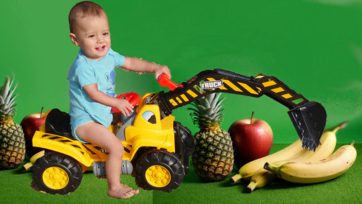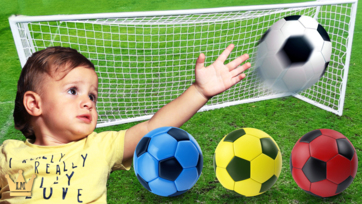The Joy of Learning Together
Children discover the world best through play. Songs, rhymes, and stories help them understand basic concepts such as colors, numbers, shapes, animal sounds, and everyday good habits. Singing and moving together are not only fun but also support attention, rhythm, language skills, and memory.
12 Years of Experience and Love
For more than 12 years, we have been creating children’s songs and videos with the mission of bringing the joy of musical learning to every child. Our content is designed to be both fun and educational, helping children grow happily and in a healthy way.
Classic Rhymes with a Modern Touch
Nursery rhymes have been loved by families for generations. Their simple lyrics and catchy melodies make them easy to remember and fun to sing. We present these timeless classics in a colorful, modern form so today’s children can enjoy them as much as their parents once did.
Family at the Heart of Our Videos
Our children – Romeo, Ronaldo, Tiffany, Denis, and Natasa – often appear in the videos, because we believe kids learn best from other kids. When they see their peers singing, building, or helping each other, they are naturally inspired to follow along.
Safe and Meaningful Content
We know how important it is for parents to feel confident about what their children are watching. That’s why every video we produce is safe, friendly, and age-appropriate. You won’t find violence or frightening scenes – only love, laughter, play, and learning.
Building Good Habits
Our songs and stories also encourage everyday good habits: brushing teeth, tidying up, being kind, helping others, and eating healthy. These small steps shape children’s future, guiding them toward becoming confident and caring individuals.
For Parents Too
We don’t just speak to children – we also speak to you, the parents. We encourage you to sing, clap, and dance along with your little ones. These shared moments strengthen family bonds and create memories that last a lifetime.
Final Thoughts
At NurseryRhymesTV.com, our goal is to provide joyful learning experiences for every child. We believe that music and play can make the world a better place – one smile, one song, and one laugh at a time. Thank you for joining us on this journey, and we hope our videos bring happiness and inspiration to your family too.





